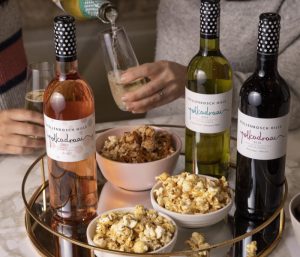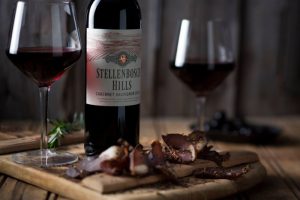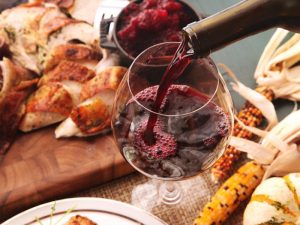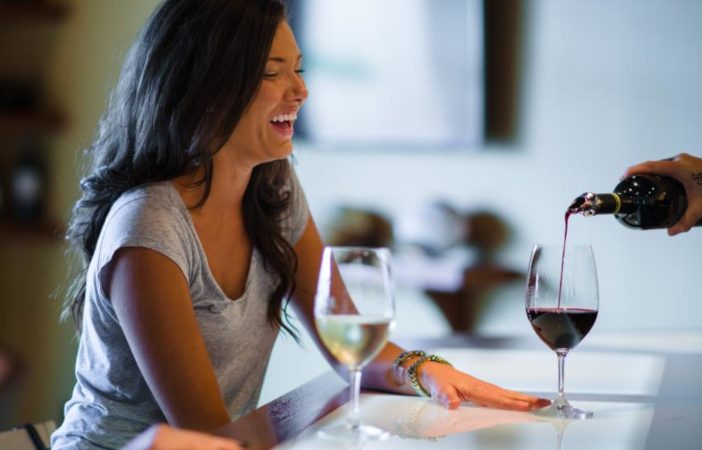The South African wine industry has evolved greatly since the first wine was produced in South Africa in 1659. And so has the South African wine consumer.
Of course, wine lovers are excited to get back to wine tasting evenings in the aftermath of the national lockdowns. But winemakers are also seeing a new generation of budding wine enthusiasts emerge who are keen to give wine tastings a try.
AbuzzWine’s Nick Plummer, the man behind the wine evenings at Erinvale Estate Hotel & Spa, shares the ins and outs of wine tastings for first-time wine tasters. He also dispels a few myths along the way.
PriceCheck tip: You can shop and find South Africa’s best wines online using PriceCheck’s comprehensive wine listings and deals.

Erinvale Estate Hotel & Spa’s Wine Society meets on the last Thursday of every month. At R340 per person you’ll be able to chat to the winemakers, taste 9 different wines and enjoy delicious snacks and small plates from the kitchen of Chef Stefan Bekker.
1. You don’t have to be a wine snob
Although wine events have an ‘elitist’ reputation, the reality is actually a lot more relaxed, fun and informative.
“Preconceptions, myths and misgivings abound,” says Plummer. “For example, people worry that they don’t have a refined enough palate; that they need to appear knowledgeable; or that their lack of wine knowledge will be shown up. It’s simply not true. And if you go in with that attitude, you’ll have a dreadful time. Or feel obligated to buy one or two bottles of wine, and leave with the next-to-cheapest bottle under your arm as a guilt purchase. Don’t be that person!” Shopping for wine is a personal decision and shouldn’t involve anyone else’s likes and dislikes.

“We leave any ‘elitist behaviour’ to the folks who have probably never paid for a bottle of wine, and spend their lives swirling, sniffing, slurping and spitting. There’s no real fun to be had there! The good news, is that those people don’t attend social wine tasting events,” says Plummer.
PriceCheck tip: A fantastic gift for any wine lover is a compact wine fridge. Check out the best deals on wine and bar fridges on PriceCheck.
2. Forget investment. It’s a journey of discovery
There is a tiny percentage of people who buy wine as an investment, but going to a wine tasting doesn’t generally lead us down that path, explains Plummer, instead it should be a journey of discovery.
Whether it’s a social event, such as Thursday evenings with the Erinvale Wine Society, or a trip to a wine farm, it’s all about:
- Discovering new names and labels – so what if you’ve never heard of the farm before?
- Discovering new varietals and blends – you only buy sauvignon blanc or shiraz at the store, but NOW you can try something new, and something different, without any obligation to purchase.
- Discovering new aromas and flavours – coming hot on the heels of new varietals, blends AND brands, there are many wines that have unique aromas and flavours, we just have to find them.
- Discovering new favourites – often something you may never have considered before.
- Discovering new friends – whether you’re at a farm or a formal function, remember that there are other people in the room who have a similar interest in discovery that you have.
PriceCheck tip: Wine aerators help bring out the flavour in many red wines. Find the best deals on wine aerator on PriceCheck.

3. Engage all five senses
Plummer explains that wine tasting is a completely immersive and sensory experience:
- SIGHT – swirl the wine in the glass and see the colours in the middle of the wine and around the edges.
- SMELL – get your nose right inside the glass and take a deep sniff. You don’t have to be able to identify any particular aromas (leave that to the really tiny percentage of people who can), but simply savour the smell. Over time, you may even find that you have a better sense of smell in one nostril than the other!
- TOUCH – wine has a texture. Your tongue not only identifies taste, but texture, better known as “mouthfeel.” It can be dry, crisp, sharp, smooth, creamy, grippy, gritty, to name but a few textures. When you sip the wine (remember to slurp it, to get a good amount of oxygen in with the wine), give it a good swish around your mouth – almost like chewing the wine – to feel the texture.
- TASTE – the main reason we drink wine. It’s got to taste good, otherwise we won’t enjoy it! After you’ve swished the wine around your mouth, take in a little more air, and consider the five different elements of taste perception: saltiness, sourness, bitterness, sweetness and umami (from the literal Japanese for “delicious taste,” savoury, in other words). After you’ve tasted, feel free to either swallow, or spit the wine out of your mouth (into a spit bucket, it’s generally frowned upon to spit wine on the floor), and observe how the textures and flavours linger in your mouth.
- HEARING – yes, hearing. Not by listening to the wine (unless you can hear all those tiny bubbles popping in a glass of Champagne), but listen to the winemaker. Boutique and family-run wine farms have fabulous stories to tell; about their adventures, their journey to winemaking, the characters on the farms, and the inspiration behind the labels and the wine names! Plummer’s top tip? If you want to really engage with a winemaker at a wine tasting, don’t ask them HOW they make the wine, ask them WHY they make the wine.

4. A good wine is one you enjoy
At a wine tasting, you have the perfect opportunity to try a wine without buying it (although most wine tasting evenings do give you the opportunity to purchase or order wines at great prices).
Importantly though, remember that no two people have the same taste, and every wine is appreciated on an individual basis. As Plummer explains, don’t think you have to like a wine simply because everyone else is going crazy over it.

“The actual tasting of a wine is a personal experience,” says Plummer. “Tasting notes are there as a guide, not an instruction, as to what aromas and flavours to expect. Your senses may pick up something completely different from the person sitting next to you.”
From this alone, a ‘good’ wine is one which you enjoy personally. It can be R100 a bottle, or it can be a R1,000 a bottle. It can be a name that everyone knows, or it can be from a completely obscure brand. As Plummer says, it’s all down to you.
Once you have found a few wines that you love, then shopping for the best prices on wine will be a lot easier and more pleasurable!




